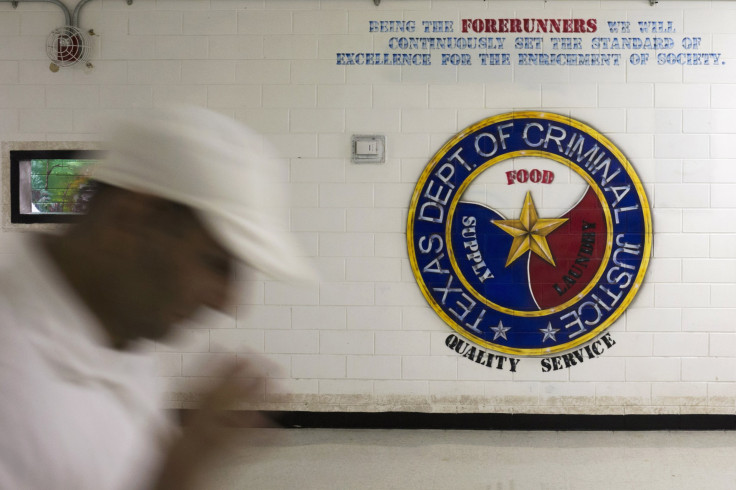Prison Conditions In The US: Texas Jail Policies Led To Heat-Related Deaths Of 22 Inmates, Judge Says

Texas prison system policies have contributed to the deaths of 22 inmates from heat-related illnesses since 1998, a federal judge said in a ruling allowing a lawsuit filed by a victim's family to go to trial.
Larry Gene McCollum, 58, died of hyperthermia — also called "heat stroke" — while serving a 12-month sentence for forgery at Hutchins State Jail near Dallas in 2011. McCollum, a taxi driver, was one of 10 prisoners to die in Texas corrections facilities from heat-related illnesses during an intense heat wave that summer. His family filed a lawsuit against the Texas Department of Criminal Justice in 2012, claiming the department was indifferent to inhumane conditions that led to McCollum's death. U.S. District Court Judge Keith Ellison ruled in an 83-page order earlier this month that the case could go to trial. The order was unsealed on Tuesday.
“Larry McCollum’s tragic death was not simply bad luck, but an entirely preventable consequence of inadequate policies," Ellison wrote. "These policies contributed to the deaths of 11 men before McCollum and 10 men after him."
Ellison's ruling said temperatures outside of Hutchins State were above 100 degrees for at least six hours and peaked at 107 degrees with humidity that never fell below 40 percent. The heat index was roughly 150 degrees, according to a chart kept by the University of Texas Medical Branch at Galveston. McCollum, who was morbidly obese, was found convulsing on his top bunk on July 22, 2011. His temperature was 109 degrees when he arrived at the hospital, and he died six days later, the Houston Press reported.
In the dorm where McCollum was found, the windows were sealed and there were two ceiling fans and one floor fan circulating air. Ellison wrote the water given to inmates was between 75 and 80 degrees. However, McCollum couldn't have any of it: he had only been at the jail for seven days and was not yet eligible to purchase a cup to from the commissary. It typically takes inmates about 30 to 45 days to be able to buy from the commissary.
The Texas Department of Criminal Justice was housing 150,000 incarcerated men and women across 109 prisons. The majority of these prisons, including Hutchins, were not equipped with air conditioning for prisoners, Ellison wrote.
The Texas Department of Criminal Justice was expected to appeal the ruling to the 5th U.S. Circuit Court of Appeal, CBS News reported.
© Copyright IBTimes 2024. All rights reserved.






















